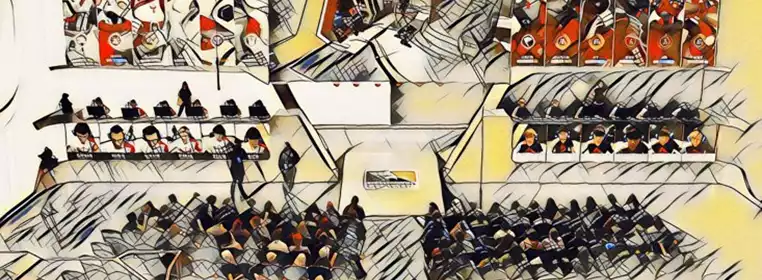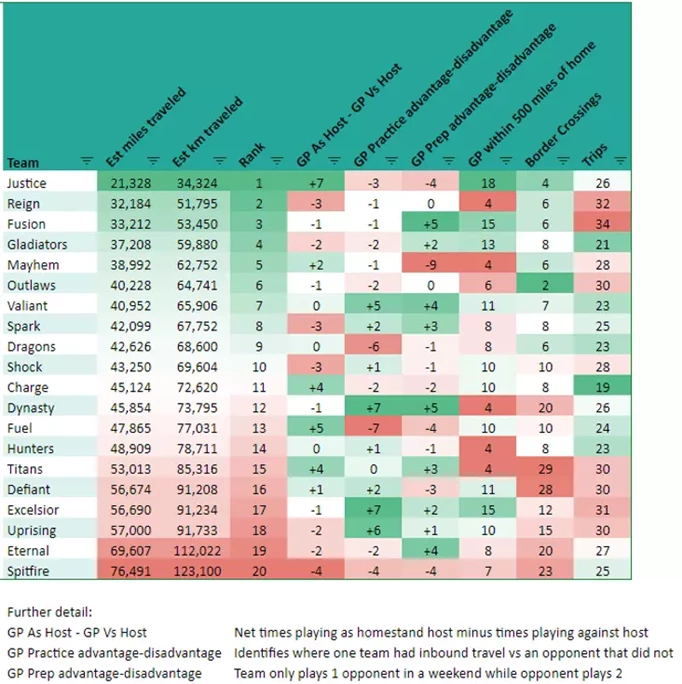On the Importance of Breaks - OWL Head Coaches Weigh In

After a three week rest period, Overwatch League came back last weekend with a new set of rules for hero pools. With this, the Overwatch League reacted to player and coaching feedback that had named 1-week hero pools as a culprit for high amounts of stress leading, for some even leading to burnout. The current rotation of 2-week hero pools into two weeks of no bans culminating in a tournament like the May Melee had been well-received by both teams and community, hoping to take away some of the pressure to practice long gruelling hours.
“Players are working crazy hours every day” - Head coach of the Dallas Fuel, Aaron "Aero" Atkins
Due to COVID-19, the league had to fundamentally restructure their schedule. Initially, it was planned to be a 27 week long regular season with individualized schedules for each team, which would’ve seen teams play between 15-19 active weeks while travelling. With the limitations forced by the global pandemic, unique challenges had to be overcome and be worked into the schedule. Some teams had to relocate to their new home region, others had to fill up their roster plagued by retirements, and a couple had to engage in full rebuilds, requiring the Overwatch League to work around these factors. Naturally, the league had to start playing catch up to the initial schedule especially in the Asian region but also in North America where some teams had been behind. Eventually, the regular season was cut down to 21 matches per team to account for the lost time.
Throughout all of this, some teams were forced to play several back-to-back weeks trying to figure out the new meta, forcing them to remain on a highly stressful schedule, some citing 70 hour work weeks or more. After the intensity of preparing for the high-stakes May Melee tournament, which even saw an additional uptick in required preparation, Overwatch League teams welcomed the decision of the league to schedule an almost three-week-long break.
Overwatch League coaches weigh in
“The break definitely helped our team destress, it was frankly long overdue. We had scrimmed an average of 6 days a week for over 4 months in a row.“ said head coach of the Atlanta Reign Brad Rajani in a statement to GGRecon. The Reign’s situation had been unique in that the regular season schedule before the COVID amendments saw them start a month late into the season, skipping the first three match weeks by design. Due to those circumstances, Atlanta was set on a 6-week streak of matches and with 11 matches, they’ve still not quite caught up to the Outlaws, who are leading the pack of most matches played at 15.
Head coach of the Dallas Fuel Aaron "Aero" Atkins agreed with Rajani’s sentiment. “I think most breaks feel like a help to the team's well-being.” Elaborating on the player’s situation, he added that “players are working crazy hours every day and getting some time off to relax helps level people out. It allows players to compartmentalize that stretch of the season and easily start a new chapter where they can focus on new goals.” David "dpei" Pei agreed, though raised the point that each player has their own idiosyncratic reasons for needing a break, saying that “breaks affect individuals differently, but the break in the middle of the season is really good for every team I think. For some people like Cloudy, the break is just more opportunity to play ranked. For others like Birdring, it was an opportunity for him to just not think about Overwatch and come back fresh.” He concluded that the break had been a success in allowing everyone on the Los Angeles Gladiators to “come back better and with more resolve to finish off the season.” Vytis "Mineral" Lasaitis, head coach of the Boston Uprising also shared this opinion. “I think for sure having a bit of a break after going almost non stop for the entirety of 2020 was a good thing for most teams. We obviously have some new guys who haven't gone through the whole season who were just itching to get back at it, but for everyone else I think it was very welcomed.”
Seasoned Overwatch League veteran and Houston Outlaws Head coach Harsha Bandi praised the specific execution of the break. “The way this break worked was pretty much perfect because we had no idea what patch or bans we would play on. So most teams just figured that they might as well not scrim even if they would have in a previous season.” In the past, many teams had used breaks in their schedule to keep practicing as the stale meta put a steady target to work towards in front of the teams, especially those which had disappointed in their performances.
Should more breaks be part of the OWL schedule?
At the initial conception of the schedule, the season had been packed fairly tight with only the mid-season breaking off active play for every team, though some would’ve had to compete in a mid-season tournament that would have pitted the best teams against each other. Some coaches also advocated for a longer season with more breaks built in by design. “Just generally a structure where the season goes a bit longer but has a few more breaks in it is something I think all players and staff appreciate and want more of,” Rajani weighed in, continuing that indeed “the league has more breaks planned as well and I think these are critical for both our physical and mental health.”

 Click to enlarge
Click to enlargeWith the aforementioned 15-19 active weeks per team in a 27-week-long regular season, the average team would’ve landed at around 9 weeks off-time, though travel (between approximately 21,000 and 76,000 miles) would’ve added an additional stressor to the system. The league had recently shown itself flexible to feedback and has indicated that the season format would be something they’d be looking at for next year.
Boston Uprising’s Lasaitis sees the reasoning in the question behind the requirement for more breaks, one that would have to be answered in context of the season format next year, “I think it really depends on the amount of games and travel we have to do, along with the format. Whether we continue with a similar format of tournaments or if we move to something different. So I'm really not sure, but just having a bye week here and there usually helps.”
Given the on-going uncertainty due to COVID-19, the league will have to remain adaptable to the challenges that the global situation might pose even next year. Coaches around the league agree that ample breaks are much-needed components of every future schedule.
Images via Blizzard Entertainment
